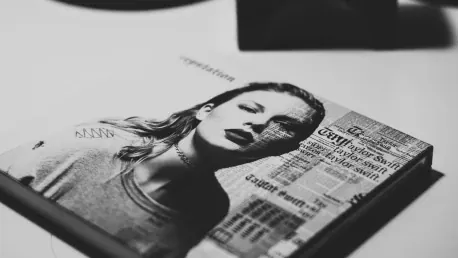The legal battle between public figures and the unauthorized use of their likeness is not new, but the advent of AI-generated content has added a complex layer to these disputes. In a recent scenario that brings this issue to the forefront, former President Donald Trump used his Truth Social platform to post AI-generated images of pop superstar Taylor Swift, falsely depicting her as a supporter. These images showed Swift and her fans wearing “Swifties for Trump” t-shirts and an image of Swift dressed as Uncle Sam urging people to vote for Trump. This depiction is particularly misleading given Swift’s public political stance against Trump and her support for Joe Biden in the 2020 election. The incident raises questions about Swift’s legal options to counter these false endorsement claims, especially considering the right of publicity and the increasing challenge of protecting this right in an age of advanced AI technology.
Legal Basis for Swift’s Complaint
Taylor Swift has valid legal grounds to sue Donald Trump for these deceptive AI-generated social media posts, according to entertainment and intellectual property attorney Wallace Collins. The key issue centers around Swift’s right of publicity—the legal ability to control how one’s name, image, and likeness are used by others. The false depictions could be construed as defamation, as they can potentially harm Swift’s reputation by falsely associating her with a political figure she does not support. In addition, Swift could argue that these images misappropriate her likeness for commercial gain, which is a clear violation of her publicity rights.
However, pursuing litigation could be both costly and time-consuming. Swift’s team would need to prove that Trump’s posts caused actual harm to her reputation, a task that can be complicated by the potential defense of free speech under the First Amendment. Given the highly polarized nature of American politics and the celebrity status of both parties involved, any legal actions could turn into a prolonged and highly publicized courtroom drama. This process might not only be exhausting for Swift but could also divert attention from other professional commitments and causes she supports.
The Role of AI in Complicating Legal Protections
The rise of AI technology has made it easier than ever to create realistic digital impersonations, intensifying the risk of unauthorized use of someone’s likeness. Lawmakers and individuals alike are grappling with how to protect rights of publicity in this new digital landscape. AI-generated content blurs the lines between reality and fiction, making it difficult to distinguish between genuine endorsements and fabricated ones. This poses a significant challenge for celebrities and public figures who wish to maintain control over their image and public perception.
A proposed federal law known as the NO FAKES Act aims to address this issue by illegalizing the publication of digital reproductions of someone’s likeness without their consent. While this legislation could offer some protection, it is still in the proposal stage and not yet a legal reality. Until such laws are enacted, individuals like Swift have limited legal recourse to combat false AI-generated endorsements. Even with the law in place, enforcing it globally and across various platforms could prove to be an arduous task.
Strategic Public Response as an Effective Alternative
Instead of engaging in a potentially drawn-out legal battle, Wallace Collins suggests that a more effective approach for Swift might be to use her substantial social media influence to publicly denounce the false endorsements. Given Swift’s massive following and her adept use of social media to communicate directly with fans and the public, a well-crafted message could quickly counteract Trump’s misleading posts. By taking to platforms like Instagram and Twitter to clarify her political stance and disavow any association with the former president, Swift could effectively neutralize the impact of the false endorsements.
Such a strategic public response could yield immediate results. Swift has previously demonstrated her ability to galvanize her fan base and sway public opinion on various issues. By directly addressing the false AI-generated images, she could not only protect her reputation but also potentially affect Trump’s campaign. Publicly denouncing the posts and reiterating her actual political stance might have a more significant impact on public perception than any court ruling could achieve.
The Intersection of Technology, Law, and Public Influence
The advent of AI technology has made it easier to create lifelike digital impersonations, heightening the risk of unauthorized use of someone’s likeness. Lawmakers and individuals are now grappling with how to protect rights of publicity in this evolving digital world. AI-generated content blurs the lines between reality and fiction, making it hard to differentiate between genuine endorsements and fabricated ones. This presents a major challenge for celebrities and public figures who want to control their image and public perception.
A proposed federal law, known as the NO FAKES Act, seeks to tackle this issue by making it illegal to publish digital reproductions of someone’s likeness without their consent. If passed, this legislation could offer some protection, but it remains in the proposal stage and has not yet become law. Until such laws are enacted, individuals, including high-profile figures like Taylor Swift, have limited legal avenues to fight false AI-generated endorsements. Even with the law in place, enforcing it on a global scale and across various platforms could prove to be a daunting task.









